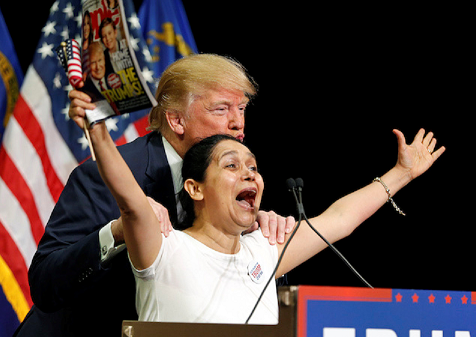“Bureaucracy can never be cured from within, but is always fatal if not cured”
Last week Bob Montgomery made the case against bigger government here at UnifiedPatriots, which prompted me, after a mighty Thanksgiving dinner, to sit down with my wife and break open the seal to a film she’d pulled from a Catholic group’s list of best films. How Akira Kurasawa’s 1952 classic, “Ikiru”, or “To Live”, worked its way onto that list I’ll never know, but she picked that one out.
Kurosawa is a multiple-Academy Award nominee and winner, perhaps best remembered for his “Seven Samurai” (1957) which served as the format for the all-time classic western great “The Magnificent Seven”.
Filmed in the same year the United States handed civilian control of government back to the Japanese, “Ikiru” is considered by many to be his finest work, both as art, and his dissecting of the bureaucratic mind.
The protagonist is a man named Watanabe, a thirty year civil servant, a ranking section chief in a major Japanese city. And as the prologue states, Watanabe had been dead for twenty years.
Then he visits his doctor with stomach problems and is then told he really is going to die, from stomach cancer, within a year.
The first half of the film is Watanabe’s initial reaction to the news (to get drunk with a writer) and his inability to tell his self-centered son and daughter-in-law. Then he stays away from work for several days, trying to find some reason to want to live with the time he has left. He is guided in this quest with the help of the young woman from his office, shown in the trailer, who has decided to quit her job in the bureaucracy.
The most unhappy, mournful man I have ever seen, he finally concludes that the way to live is to take up a project at the office which bureaucracies always avoid, a citizens’ complaint about a chemical spill in a neighborhood, and wouldn’t it be nice if the city would fill it in and put up a park for children instead? They get the old-fashioned run around which you will recognize.
For black and white and subtitles, this is indeed high film art. It’s hard to watch Watanabe as he sinks further into despair.
The last quarter of the film is the least appreciated by critics but probably the most illustrative of not only the souls of bureaucrats, but of bureaucracies and the reason I bring it to you now.
If you are like me, and worry about what to do with the threats that confront us, and oppressive bureaucracy certainly is one, you will see this film and the threat will take on a clearer focus, and 2000 words will come to your mind as easily a four-letter name for Democrat.
As soon as Watanabe has declared his intention to get that park built. you find that Watanabe has died, and you are suddenly at a Shinto shrine where the family (his son and daughter-in-law) has his wake, his entire office in attendance to drink saki and toast his memory in the very traditional Japanese way, which I witnessed when I lived there in the 1970s.
From the vice major on down to every city department, the discussion was about that park that was in fact built after the cess pool had been drained… only that Watanabe had very little to do with it. Yes, it was his idea, well maybe, but the other department; Parks, Engineering, Administration, and of course, the Vice-Mayor’s office, all moved this project along. Watanabe had nothing to do with it, the vice major insisted. But after he departed with his staff, the underlings who shared the office with Watanabe, as shown in the trailer, stayed on, drinking more and more saki, congratulating themselves about the jobs they did in building that park.
Except for one, who defended Watanabe, reminding them of little events that only Watanabe could have made happen. Slowly, in the grip of liquor, the others slowly cam around to agreeing, yes, especially after a delegation of women, mothers from the neighborhood, came into kneel and burn incense at the shrine for Watanabe.
In the end, totally sloshed, finally the group broke up, promising the gods to rededicate their lives to “giving up the individual self for the public good.” as Watanabe himself had done.
The final frame of the film was all those fellows back at the office, leafing thru papers and affixing their seals as they always had done, once again oblivious to the people who came in to make requests.
In 1957 Kurosawa was producing a drama, not a political statement, nor a Darwinian natural law , that bureaucracies cannot cure themselves. At least I don’t think he was. I believe he believed, and his audiences believed, that bureaucracies were as much a part of nature and as unavoidable as death and taxes,
We now know better. Bureaucracies kill. Moreover, they are now wiling to kill and destroy to maintain their place, even as (which Kurosawa may not have known) they must also grow in size just in order to survive.





1 thought on “Kurosawa’s “Ikiru”, (“To Live”), a Retrospective on Bureaucracy”